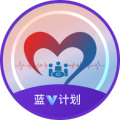较高的心血管风险评分与较低的认知功能相关
Higher cardiovascular risk score linked to lower cognitive function
较高的心血管风险评分与较低的认知功能相关
A risk calculator used to predict cardiovascular disease also may help predict a person's poor cognitive function, new research suggests.
最新研究表明,用于预测心血管疾病的风险计算工具也可能有助于预测个人的认知功能。
The study, published Tuesday in the Journal of the American Heart Association, found that the higher a person's 10-year cardiovascular risk score, the worse they scored on tests for cognitive function, adding to a large body of evidence suggesting that controlling heart-health risk factors may help protect brain health.
《美国心脏协会杂志》发表的一项研究发现,个人的10年心血管风险得分越高,他们在认知功能测试中的得分就越低。这表明,改善心脏健康的因素可能也有助于保护大脑健康。
"We know that cardiovascular disease shares a lot of risk factors with cognitive decline or dementia," said study co-author Jingkai Wei, who holds a doctorate in epidemiology and is an assistant professor at the University of South Carolina's Arnold School of Public Health in Columbia. The results suggest every 5% increment in the cardiovascular disease risk score may be related to poorer cognitive functioning, he said.
“我们知道心血管疾病与认知能力下降或痴呆症有很多共同的风险因素,”该研究的合著者Jingkai Wei说道。Wei拥有流行病学博士学位,是南卡罗来纳大学哥伦比亚分校阿诺德公共卫生学院的助理教授。他表示,研究结果表明,心血管疾病风险评分每增加5%,都可能预示了更差的认知功能。

2
//
Families need good communication following a sudden cardiac death
《循环》| 家庭成员猝死后,调查员需要与死者家属良好沟通
When a person dies suddenly from cardiac arrest – especially if they are young – family members often struggle to understand what happened.
当一个人,尤其是年轻人,突然死于心脏骤停时,其家庭成员通常很难理解发生了什么。
How well death investigators and health care professionals communicate with family members about the causes of sudden cardiac deaths may influence their decision to seek screening for inherited heart conditions, according to a new study, published Tuesday in the American Heart Association journal Circulation: Cardiovascular Quality and Outcomes.
美国心脏协会杂志《循环:心血管质量和结果》(Circulation:cardio vascular Quality and Outcomes)发表的一项研究显示,死亡调查人员和医疗保健专业人员与死者家属就心脏猝死原因的沟通程度,可能会影响家属寻求遗传性心脏病筛查的决定。
The findings suggest that the communication formats, methods and processes, along with other external factors, such as funeral costs and unpaid time off from work, may influence family members' decisions to seek follow-up screening. More families may go for follow-up screening if their risk is adequately explained by a health care professional and if other external factors are manageable."
研究结果表明,沟通方式、方法和过程,以及其他外部因素(如丧葬费和无薪休假),可能会影响家庭成员寻求后续是否进行遗传性心脏病筛查的决定。如果医疗保健专业人员充分解释了风险,并且其他外部因素可控,可能会有更多家庭愿意随访和筛查。

3
//
Understanding the stroke-depression link
了解中风和抑郁的关系
American Heart Association scientific statement proposed that poststroke depression affects about a third of stroke survivors. The likelihood is greater during the first year after a stroke and slowly declines after.
美国心脏协会的科学声明提出,中风后抑郁可影响大约三分之一的中风幸存者。这种可能性在中风后的第一年最大,之后慢慢下降。
The diagnosis is complicated by overlapping factors that can appear to be depression but aren't. A stroke survivor might be dealing with issues such as grief from a loss of ability or post-traumatic stress from experiencing a stroke and hospitalization. Stroke survivors also can experience a condition known as pseudobulbar affect, which can lead to involuntary bouts of crying, laughter or anger.
中风和抑郁的表现有部分重叠,这使得诊断变得复杂。例如,患者某些表现看起来像抑郁症,但其实不是。中风幸存者可能会面临一些问题,如因能力丧失而悲伤,或中风和住院带来的创伤后压力。此外,中风幸存者还会经历一种称为假性延髓反应的情况,它会导致不自觉的哭泣、大笑或愤怒。
Depression can affect people who have transient ischemic attacks, or "mini-strokes," that leave no physical effects. Depression also affects people whose strokes leave them unaware of their disabilities, a condition known as anosognosia.
抑郁症会影响那些曾短暂性脑缺血发作,即“小中风”的患者,也可能影响那些中风后没有意识到自己残疾的人,即病感失认症患者。

















































